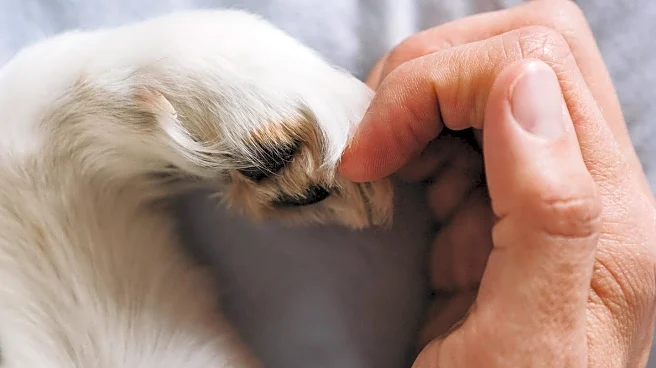What's Happening?
The PAWS Program, in collaboration with Crisis Center North, is providing a unique form of support to survivors of domestic violence by pairing them with dogs. This initiative aims to aid in the healing process and help survivors rebuild their lives. The program highlights the therapeutic benefits of canine companionship, offering emotional support and a sense of security to individuals who have experienced trauma. Megan Shinn reports on the impact of this program in the KD Sunday Spotlight, showcasing stories of survivors who have found solace and strength through their relationships with these animals.
Why It's Important?
The PAWS Program addresses a critical need for emotional and psychological support among domestic violence survivors. By integrating dogs into the recovery process, the program not only provides companionship but also fosters a sense of responsibility and routine, which can be pivotal in the healing journey. This approach underscores the broader significance of animal-assisted therapy in mental health care, offering a non-traditional yet effective method to support vulnerable populations. The initiative could inspire similar programs across the country, highlighting the role of community organizations in addressing complex social issues.
What's Next?
As the PAWS Program continues to grow, it may seek to expand its reach and resources to accommodate more survivors. Potential developments could include partnerships with additional shelters and advocacy groups, as well as increased funding to support the care and training of the dogs involved. Stakeholders such as mental health professionals and domestic violence advocates may explore further integration of animal-assisted therapy into their services, potentially influencing public policy and funding priorities in the realm of social services.
Beyond the Headlines
The PAWS Program not only provides immediate relief to survivors but also raises awareness about the broader issue of domestic violence and the innovative solutions available to support those affected. It challenges traditional perceptions of therapy and recovery, advocating for holistic approaches that consider emotional and psychological well-being. The program's success could lead to increased recognition of the therapeutic potential of animals, influencing cultural attitudes towards mental health and recovery.










